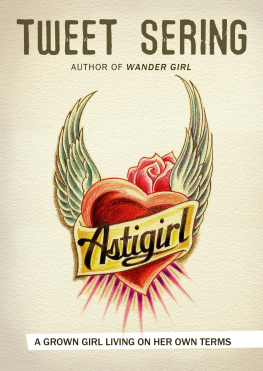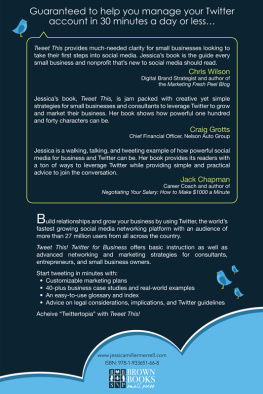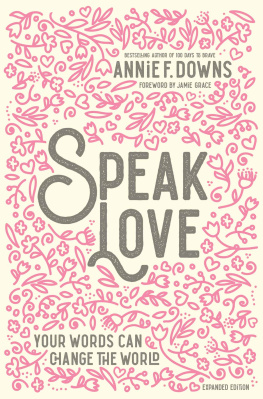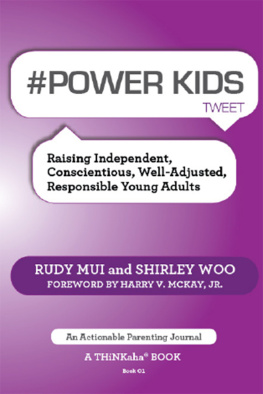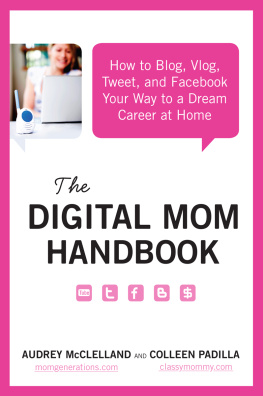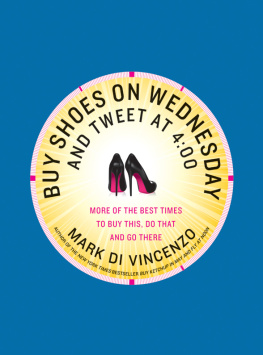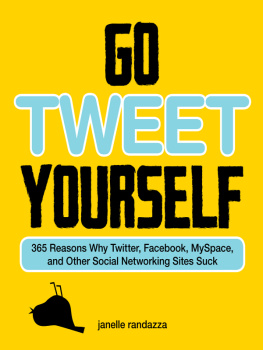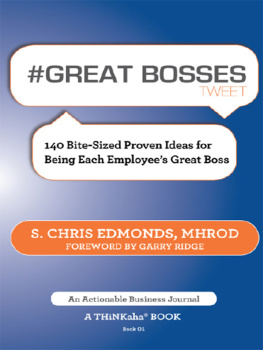Astigirl
Copyright Tweet Sering 2011
Cover design and illustration by Marge Melendez-Albito
Author photograph by Mark Meily
First published in print by Astigirl Publishing
ePub design and production by Flipside team
eISBN 978-971-9922-95-7
This e-book edition published 2011
by Flipside Digital Content Company, Inc.
Quezon City, Philippines
www.flipsidecontent.com

This book is dedicated, with love and gratitude, to my astig parents, Boy and Ningning Sering and to the two Astigirls who raised them, my grandmothers Socorro Limpot Sering and Nena Orteras Tiukinhoy.
DONT QUESTION WHY
SHE NEEDS
TO BE SO FREE
SHELL TELL YOU ITS
THE ONLY WAY
TO BE
- The Rolling Stones, Ruby Tuesday
I JUST WANNA BE AN ASTIGIRL
(An introduction and a little disclaimer)
If you want to inject an idea into a persons head, where it will spread like a virus (the way Leonardo DiCaprios character does in the film Inception) and drive that persons actions, thereby shaping that persons character, do that when he or she is a teenager. They are so lost and insecure and vulnerable and feeling oppressed, they will latch onto anything. Especially onto the idea that they are meant to be free and to live big, passionate, authentic lives that will honor who they really are.
I was 16 when Tom Schulman and Peter Weir got to me. Heavily quoting Walt Whitman, Henry David Thoreau, Ralph Waldo Emerson amid lush New England scenery and a haunting score, the screenwriter and director, respectively, of the film Dead Poets Society injected into my head the idea that everyone was inherently capable of living the life they imagined, no matter how impossible or strange it seemed to others. And that becoming an individualfinding ones voice and being true to thatwas the ticket to living that life.
I was completely blown away. Since then, being an individual became my biggest goal. It was, truly, the height of ka-astigan to me.
I knew it was going to be difficult, this business of becoming an individual, of being astig; in the movie, one of the lead characters resorted to taking his own life rather than having his voice or his true self stifled.
But I certainly didnt expect it to be so damn difficult. Or so close to impossible.
Since that fateful day in the cinema almost 22 years ago (go ahead, do the math), finding my voice has been my lifes work. I was driven to discover the answer to the following questions: What do I want? What do I dream of? What do I care about? What are my sterling qualities? What are my miserable traits? What cant I stand? What do I stand for? What will I die for? What will I live for?
I just wanted to know who I amto see the whole picture or to stand as close to it as possibleso that I could honor it by living according to that knowledge. I just wanted, in other words, to live on my own terms.
And finding out what those terms are took a while.
Much as I wouldve welcomed other things, like maybe learn to do my own make-up or blow-dry my hair, theres just been little energy for anything else. Especially since I neglected to factor in the contextbecause I, of course, wasnt aware of it thenwithin which I was trying to be an individual: the intensely tribal or family/group-oriented society as the Philippines, where individuality was seen more as a threat to the group rather than as a strengthening force.
In our culture, personal independenceor any form of focus or reliance on the selfseems to be regarded as unnecessary, if not altogether arrogant. Why depend on yourself when there is your immediate family, your relatives, your friends, your religious group? The word self tends be regarded with suspicion as people have zeroed in on its negative connotationsself-centered, self-indulgent, selfish, self-conscious, self-destructive; and easily forgetting the selfs empowering aspectself-motivated, self-sufficient, self-aware, self-healing, self-loving.
Weve been taught to be selfless and the way our culture has interpreted this is by stamping out the selfthat we forego our own needs, dreams, desires in favor of the groups, and that we do not heed or use our own instinct, intellect, and intuition because, look, there are authority figures who can do that for us and better than we can. There are people, our skewed collective thinking goes, who will always know better whats best for us, like politicians, priests, doctors, bosses, parents. Why think and act independently, on our own? If everyone else is thinking and doing what the so-called authority figuresour modern day tribal leaderssay we ought to be thinking and doing, then who are we to question that, right?
The herd or mob mentality is just as potent and as insistent in our culture as the colonial mentality.
As my Canadian friend Erin, who lived in Manila for five years, once acutely observed, if the city had a name (a concept introduced by Elizabeth Gilbert in her book Eat, Pray, Love), it would be TOGETHER. As in, Everybody in Manila does things together. Everybody lives, eats, sleeps, maybe even showers, together. You arent supposed to be able to function properly by yourself. Being alone or doing things on your own is something of an affliction that has to be avoided at all costs.
What made my situation even worse was that I was a self-described family girl. Not only did I crave family togetherness, I was proud of it. I was proud of how close I was to my family and the whole clan, of how easily and without question I could drop work or whatever else I was doing for a family member who needed me. I was at every birthday, wedding, anniversary, funeral, and every other excuse for a reunion. Without realizing it, my relationship with my family was the one relationship that most defined me.
No wonder no other group of people could affect me so much. No group of people has reduced me to tears, made me so angry I couldnt see straight, made me feel alone, unsafe, unseen and, yes, even unloved, as much and as often as my family did. I cared too much about what they thought of me. So while I wanted to go my own way, to explore and discover, I also wanted to take everybody along with me. When they refused to come along or questioned my ways or didnt exactly applaud my choices, it affected me way too much, threw me violently off-balance. Or as one doctor had diagnosed me before, I was still too tied to my family to be healthy.
My culture, my family and, most all, my selfthese were the powerful things I was up against. These were the things that were getting in the way of me living my dream life. Thats why it took years of relentless effort before I could begin to see and feel the results of my work.
The moment I felt real changes were underway in me, I started a blog called I Just Wanna Be an Astigirl as a way of chronicling the journey, in the hopes of ensuring that I never forget what Ive already learned. And what better way to retain the journeys hard-won lessons than to share them with other individuals-in-the-making.
In December 2010, I felt I was done with the blog. But since I wasnt done with the sharing bit yet, I thought of turning it into a book. I wanted other people to get to read some of the things Ive writtenpeople who dont enjoy reading things online, like my parents, my grandmothers, and other senior members of my clan. (Yes, I have embraced my family girl nature). Also, nothing still beats the delicious smell of the pages of a new book nor the experience of curling up in bed with one. (Yes, I have also embraced my old-fashioned nature.)
Next page
